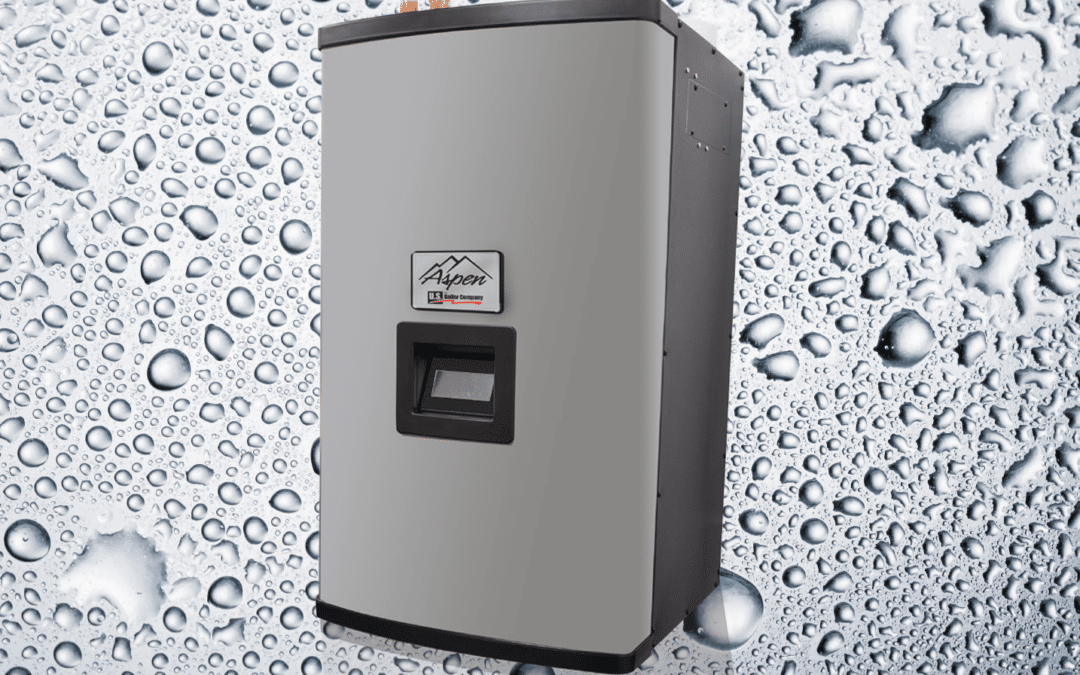According to Energy Star, 29 percent of your home’s energy costs come from heating.
So having the most efficient, and cost-effective heating system is likely a top concern of yours, especially before winter.
But there is no shortage of options when it comes to choosing which type of boiler is best for your budget and lifestyle. Understanding all of the different types, styles and features can be pretty confusing.
In this blog post, we’ll break down the key differences between traditional vs high-efficiency boilers.
Understanding The Different Types of Boilers
If you’ve been considering making a boiler purchase, you’ve likely found that choosing the right one for you can be complicated. There are a handful of different types of boilers, distinguishing boiler features, and different types of furnaces and ways to distribute heat. Combined with different residential and commercial options, there are dozens of different possibilities.
But, for general consumers, there are four main types of boilers: gas-fired, oil-fired, water-fired and electric.
- Gas-fired boilers are efficient, but can be expensive due to the availability of natural gas and fuel prices.
- Oil-fired boilers heat using standard oil and the costs are impacted by fluctuating oil prices.
- Water-fired boilers convert water to steam, and are cleaner to use than natural gas or oil.
- Electric boilers are available and highly efficient, however they are often more expensive to run than the other types of boilers.
What Makes a Boiler Efficient? How To Tell Which Boiler Is Best
One type of boiler isn’t necessarily more efficient than another across the board, so figuring out how to tell which boiler is best can be tricky. High efficiency boilers are defined by simply having an annual fuel utilization efficiency (AFUE) of 90 percent or higher. This means that 90 percent of the energy produced by the boiler is actually used, and only 10 percent escapes.
A traditional boiler can run at extremely low efficiency. Some ranking as low as 60 percent efficiency. This means that only 60 percent of the energy created is actually used, and 40 percent is wasted.
Luckily, new regulations that go into effect in 2021 have set new minimum requirements for boiler efficiency. The new standards will require all gas boilers to operate at a minimum of 82 percent efficiency, and 86 percent for oil boilers.
Energy efficient boilers also utilize condensing technology, that recycles water vapor created during heating. So this is an important feature to ask about when shopping for an energy efficient boiler.
Some of the boilers with the highest efficiency ratings are gas and water burning boilers. For example, the Triangle Tube Prestige Trimax Solo Boiler, Navien NCB Boiler and Weil-McLain ECO boilers are all gas boilers with a rating of 95 percent AFUE.
Boilers and the Environment
As you might have guessed, boilers that run off of natural gas and oil aren’t the best options for the environment. They not only require more energy to work, but they emit pollutants like carbon dioxide into the atmosphere.
Oil boilers are some of the worst environment offenders. However, some companies now offer biodiesel fuel, which creates less pollution than traditional oil.
Cost-Effective Boilers
The higher efficiency of the boiler, the more energy needed is reduced, which means more money saved. Many companies quote that using a high efficiency boiler can cut energy costs in half.
High efficiency boilers are considered a premium piece of equipment and carry a premium price tag. This can turn a lot of prospective buyers away.
But overtime, the savings of using a high efficiency boiler can pay for themselves. For example, if you save $2,000 per year from using a new energy efficient boiler, and the total upfront cost was $12,000, after six years of use, the boiler will pay itself off.
This type of purchase makes sense for a residential homeowner who plans to own a home for a while. But if a home is just an investment property that will be resold in a few years, or is only a summer home, this type of expense may not be necessary.
Choosing the Right Type of Boiler
Cleaner forms of fuel mean easier maintenance. Oil-fired boilers get easily clogged, and need to be checked regularly to maintain their highest level of efficiency and to remain safe. Water and gas fueled boilers aren’t as “dirty,” and have less operational issues.
Traditional boilers are quite large, while new energy efficient models have a more modern, and space-saving design. Not to mention that when it comes to boiler install, high efficiency boilers are easier.
Are You Ready for a New Boiler?
Although summer temperatures are just kicking-in. It’s smart to get your boiler serviced before temperatures dip and winter is here. Checking your boiler in July or August, also provides adequate time to find, purchase and install a new boiler in the event that you decide it’s time to replace or purchase your first boiler.
A poor installation can lead to many issues down the road. So it’s imperative to choose a skilled and reputable contractor for the job.
Flotechs Plumbing will install, maintain and repair your boiler. You can also rest assured we prepare the work area with drop cloths and do a full clean up of the area before we leave. In addition, we will remove your old boiler free of charge, if you are getting a replacement.
Our installation prices are very competitive and our technicians are highly experienced. Have questions about purchasing a new boiler? Click here to contact us!



